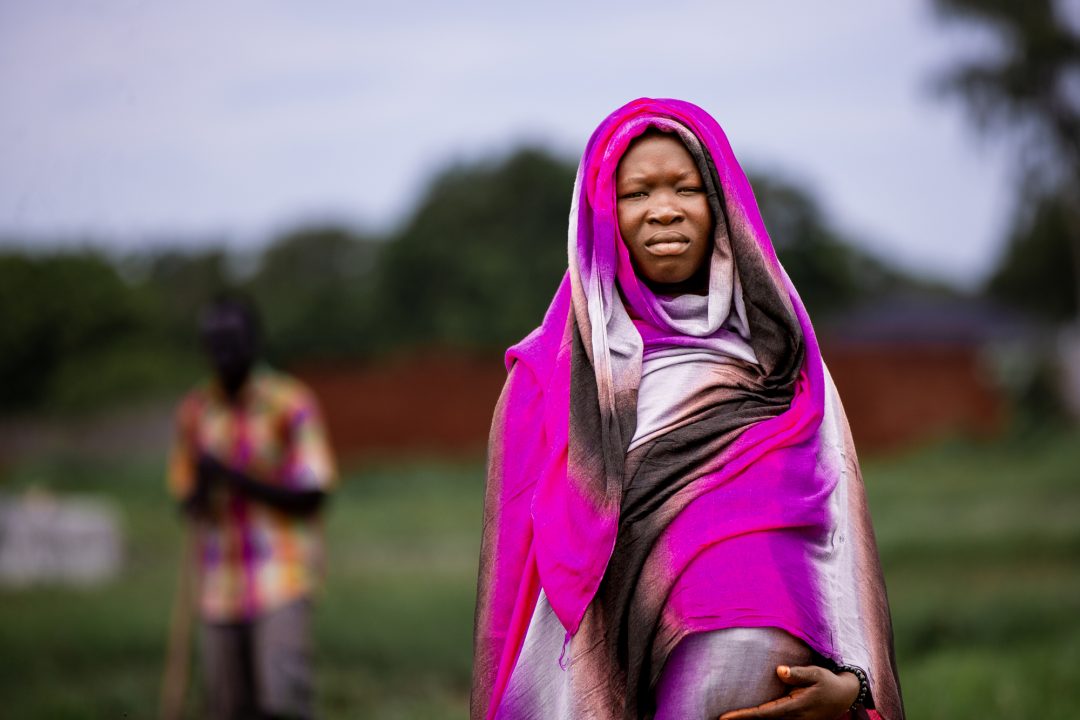SEVEN MINUTES
I was living in a hospital in Kananga in Kasai Central Province in 2012, shortly before the start of ASSP. My church hired me to renovate the hospital, but the funding was sparse. My room was a barren, concrete box with no electricity and no running water. Hopefully I would be able to fix that during the renovations. I hadn’t been there long when one night, around two in the morning, I heard someone knocking on my door. I waited to see if I was dreaming but the knocking came again. I got up and opened the door to find one of the doctors standing there looking a little shaken.
“Do you have a flashlight?” he asked hurriedly.
“Um, yeah,” I said in a daze, shaking off the deep sleep I had just woken from.
“There is a woman in labor downstairs. I need to operate but we can’t find a flashlight.”
My eyes widened, “Oh, yeah, hold on,” I said as I hurriedly searched my room for the light.
“Bring it down to the operating theater when you find it.” He said as he ran back down to attend to the woman.
It was difficult to find the flashlight in the dark. There was no light coming from anywhere. No streetlights, no moon, just utter darkness. I crawled around on the floor, feeling around for it, Finally my finger tips felt the cold glass. I grabbed it and turned on the light. The light was dim so I needed to find my other flashlight. I shined around the room and located my suitcase. It took me a few moments to find the other flashlight inside it. Seconds later I was running down the steps to the operating theater, flashlight in hand.
I found the doctors there prepping what they could in the darkness. As soon as they saw me they took the flashlight and went into high gear. The mother lay on the table, groaning and weeping quietly. She had been in labor for many hours at her home several miles away. But the baby never came. Finally, her family found a neighbor with a moto and they took her to the hospital. When she arrived late that night, the doctors determined that she needed a c section, but there was no electricity and no fuel for the generators.
The doctor handed me the flash light, I looked at him confused.
“Can you hold it for me?” he asked.
“Oh! Yeah, Yes! No problem,” I answered, still shaking off the cobwebs.
The doctor took his place next to the mother, “You can hold the flashlight up here? And shine it on the mother hear?”
I stepped into place beside him. An attendant put something in the mother’s mouth and she bit down. The doctor continued to prep the area. It took me a moment to realize what was happening. There were no pain medications. She was going to endure abdominal surgery with no pain medication. Only an old rag in her mouth to bite down on.
Soon the doctor’s scalpel was cutting down into her lower abdomen. She bore down onto the rag, groaning loudly now, tears running down her face. The scalpel continued its trail across her stomach, the crimson blood pooring out now. Suddenly the mother went limp. She had passed out from the pain.
I was surprised by how quickly the doctor’s hands were able to open the mother up. Soon I saw the baby appear there in the shaky shaft of light that I shined down on her. I was surprised by how pale her skin was. The doctor’s hand hurriedly wrapped around the baby and began pulling with great force. The baby was breach, her bottom was facing down. This was the reason the mother’s labor had not been successful.
Finally after great effort the doctor pulled the baby from her mother’s stomach. I felt hope take hold in me. She was out! The doctor took her to a table, they turned her over and began slapping her back. I waited for to hear that first sweet whimper. I stood there, shining the light on her, waiting to see her chest move with that first breath. Was this normal? I studied the doctor’s faces in the pale light for any sign that things were ok. But They looked worried. Very worried. They turned her over and put the ventilator to her mouth and began squeezing. Any second now I would witness her take her first breath. Right?
They continued several minutes, but that first breath never came. There was no longer any pulse to keep working for. She had slipped away, right there under the beam of my flashlight.
The mother laid there on the table, still unconscious and unaware of the sad news the doctors would soon tell her. She would never get to hold her baby girl and feel her warmth before it faded. She would wake to a pain that no medicine would ever cure. A hole inside her that no doctor could ever close.
I stood there in shock. That was not the outcome I expected. The doctors were still moving all around me. One of them took the flashlight out of my hands and began cleaning up. Finally, I began the slow ascent back to my room. I wracked my brain trying to figure out why? Why? Why?
It is hard to say at what moment it became too late. I couldn’t help but think that maybe it was at some point during those seven minutes it took me to find the light.
Something as simple as light.
Maybe that “too late” moment happened when the doctor was running up the steps to find me. Or maybe it happened when I was feeling around in the dark for my phone. Or during the moment when I found my other flashlight and turned it on. Yes, that was the moment. If I had just rushed down there with only my cell phone flashlight, that baby would still be alive, crying and wiggling in a warm blanket, waiting for her mother to wake up and feed her.
I couldn’t help but take responsibility. All it took was a light and I didn’t find it fast enough. It was my fault. I knew it.
If the mother had arrived to a hospital that had solar power, they would have been able to operate immediately. Instead, it took seven minutes for the doctor to find the light he needed to perform surgery. And it was seven minutes too late.
___________________________________________________________
I wrote this story as an exercise for a creative collaborative workshop. They asked me to write a story about something that happened in Congo but didn’t have a happy ending. At the time I was working in South Sudan on a video shoot for a grant competition to improve maternal health. South Sudan has the highest maternal mortality rate in the world. The woman in the photo, Joice John, was due to give birth any day. She was lucky that she lived near a health center, only 40% of people in South Sudan have access to a facility. But if she gave birth at night her luck would change. Drastically. The health center near her didn’t have electricity. Each night they closed their doors at sunset. If a woman in their community went into labor she could either give birth at home or walk seven kilometers to the nearest hospital with electricity. She told me she would rather give birth at home.
So I wrote this story. It didn’t happen to me. It happened to Antonio.



